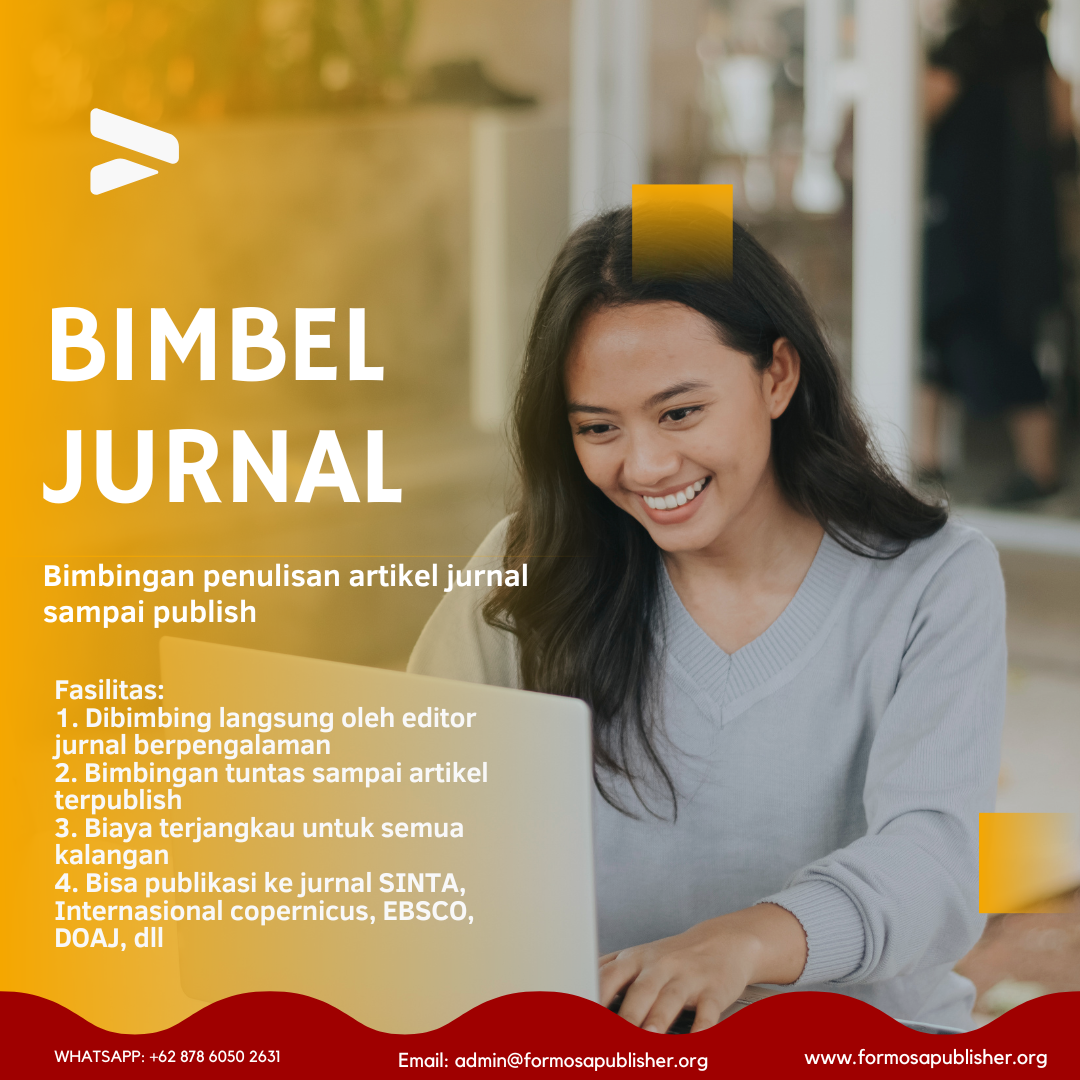Construction of Digital Entrepreneurship with Design Sprint and Social Learning Methods
DOI:
https://doi.org/10.55927/mudima.v3i2.2478Keywords:
Entrepreneurship, Design Thinking, Social LearningAbstract
This study aims to increase digital entrepreneurship motivation in students through design sprints and social learning. This research was conducted on 120 student informants who took entrepreneurship lessons from two different campuses in Papua. The research method used is qualitative. Data collection was done by way of interviews and observation. Data analysis using NVivo 12 plus software tools. The results of the study show that design sprints and social learning are very effective as strategies to increase digital entrepreneurship motivation for students. By implementing design sprints and social learning, students can find entrepreneurial ideas faster, are more creative and do not make students bored in class. This research also found opportunities and challenges for students to become digital entrepreneurs such as the lack of digital infrastructure, financial support and geographical conditions. However, there are enormous opportunities for the development of student digital entrepreneurs such as the lack of competitors at the local and regional levels, regional assets such as tourism, agriculture, fisheries and culture which can become digital business opport
References
Afwan1, B., Vahlia2, I., & Sholiha3, S. (2022). IMPLEMENTASI BAHAN AJAR DIGITAL KEWIRAUSAHAAN YANG DISERTAI NILAI-NILAI ISLAM PADA MATA KULIAH KEWIRAUSAHAAN (Vol. 10, Issue 2).
Alroshdi, Y., Albadawi, M., & Sarrab, M. (2020, March 1). Framework for Socializing Learning Content. ICCAIS 2020 - 3rd International Conference on Computer Applications and Information Security. https://doi.org/10.1109/ICCAIS48893.2020.9096832
Bandura, A. (1986). Social foundations of thought and action: A cognitive social theory. Pretince Hall.
Beyer, J., Yang, Y., & Pfister, H. (2021). Visualization Design Sprints for Online and On-Campus Courses. IEEE Computer Graphics and Applications, 41(6), 37–47. https://doi.org/10.1109/MCG.2021.3115413
Capogna, S., Figus, A., & Mustica, S. (2018). The Challenges for Digital Society: Education and E-Leadership. International Journal of Innovation and Economic Development, 4(3), 12–19. https://doi.org/10.18775/ijied.1849-7551-7020.2015.43.2002
Dhasa Eka, P., Juanda, A., Gandung, M., & Kurniawan, P. (2020). Hal (103-108) @Prodi Manajemen Fakultas Ekonomi Universitas Pamulang. 1(3).
Gruber, T., Bazhydai, M., Sievers, C., Clément, F., & Dukes, D. (2021). The ABC of Social Learning: Affect, Behavior, and Cognition. Psychological Review. https://doi.org/10.1037/rev0000311
Ilhami, R., & Achmad, W. (2022). Entrepreneurship and MSMEs during the COVID-19 Health Emergency in Indonesia. 4(2).
Jacobi, P. R., & de Souza, D. T. (2021). Environmental governance and social learning: Towards more reflexive interactions. Desenvolvimento e Meio Ambiente, 58, 932–946. https://doi.org/10.5380/dma.v58i0.78788
Kalogeras, S. (2020). Social Entrepreneurship, Smart Brands, and Epic Social Learning Networks (pp. 1–15). https://doi.org/10.4018/978-1-7998-4718-2.ch001
Khairani, A., Bella Andini, Y., Fedia, V., Okta Putri, N., Bayu Putra, R., & Studi Akuntansi Fakultas Ekonomi Dan Bisnis, P. (n.d.). INNOVATIVE: JOURNAL OF SOCIAL SCIENCE RESEARCH 378 Pada Agen Frozen Food (Studi Kasus UMKM Wins Food Kebab Padang).
Kristina, H. J. (2019). Ergonomi Partisipasi Tim Kerja Virtual pada Start Up Kewirausahaan Sosial. https://www.researchgate.net/publication/334288270
Mardy, C., & Mintardjo, O. (2019). EVOLUSI USAHA KEWIRAUSAHAAN: STARTUP DARI MASA LALU SAMPAI KE MASA DEPAN. https://www.researchgate.net/publication/339642801
Muhammad Adri, H. T. S. A. (2019). DIGITAL MARKETING SEBAGAI METODA ALTERNATIF WIRAUSAHA BAGI MAHASISWA DI UNIVERSITAS NEGERI PADANG. http://tip.ppj.unp.ac.id
Nazir, A., Indra Nizar, N., Putranto, I., Eliyani, C., & Yani, A. (2021). Hal (8-13) @Prodi Manajemen Fakultas Ekonomi Universitas Pamulang. 2(1).
Nur Rohman Ashshiddiqy. (2021). Perancangan Mobile Application untuk Startup montirkeliling.com dengan Metode Design Sprint. Kumpulan Artikel Mahasiswa Pendidikan Teknik Informatika, 10(3), 238–250.
Pan, Y., Novembre, G., & Olsson, A. (2022). The Interpersonal Neuroscience of Social Learning. Perspectives on Psychological Science, 17(3), 680–695. https://doi.org/10.1177/17456916211008429
Sanglier, G., Cepa, C. B. M., Fernández, I. S., González, A. H., & Escobar, J. C. Z. (2021). The Magic of Project Resolution in a Short Period of Time: Design Sprint Applied in Higher Education. Modern Applied Science, 15(2), 45. https://doi.org/10.5539/mas.v15n2p45
Sumarno, S., & Gimin, G. (2019). ANALISIS KONSEPTUAL TEORETIK PENDIDIKAN KEWIRAUSAHAAN SEBAGAI SOLUSI DAMPAK ERA INDUSTRI 4.0 DI INDONESIA. JURNAL PENDIDIKAN EKONOMI: Jurnal Ilmiah Ilmu Pendidikan, Ilmu Ekonomi Dan Ilmu Sosial, 13(2), 1. https://doi.org/10.19184/jpe.v13i2.12557
Wisroni, W., Pamungkas, A. H., & Yunisrul, Y. (2022). Pengembangan Wirausaha Mahasiswa UNP Menuju Digital Social Enterpreneurship. Suluah Bendang: Jurnal Ilmiah Pengabdian Kepada Masyarakat, 22(3), 525. https://doi.org/10.24036/sb.03050
Downloads
Published
How to Cite
Issue
Section
License
Copyright (c) 2023 Andri Irawan

This work is licensed under a Creative Commons Attribution 4.0 International License.































